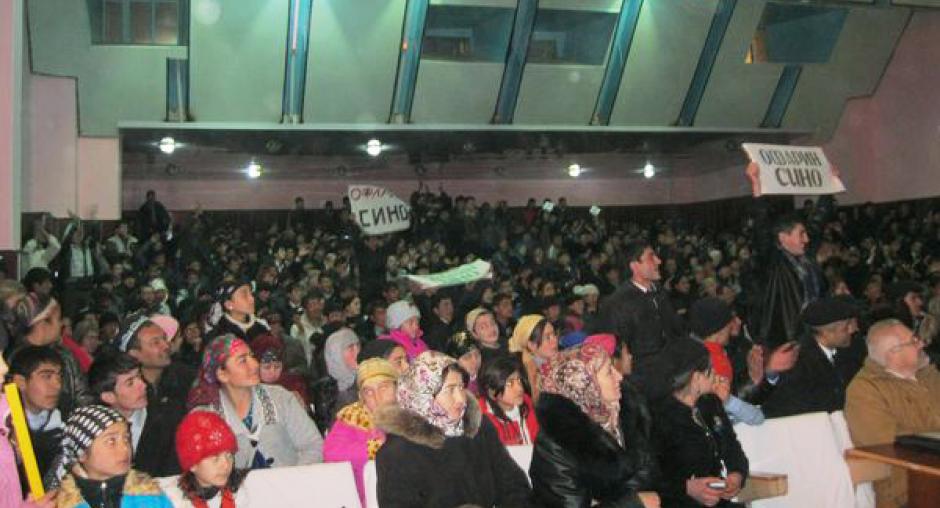OSCE Office holds Human Rights Week events for local communities across Tajikistan

The OSCE Office in Tajikistan together with its field offices in Garm, Khujand, Shartuz and Kulyab and the Office of the Human Rights Ombudsman, the Executive Office of the President and civil society partners concluded a week of events dedicated to the 63rd anniversary of the adoption of the Universal Declaration of Human Rights on 9 December 2011.
A highlight of the week was an event in Garm, which gathered more than 500 people, mostly young people, to learn about human rights principles and guarantees of rights in local legislation.
The OSCE’s Khujand field office, together with a coalition of local civil society partners, arranged a day of free legal consultations in public places in five cities and towns in northern Tajikistan. Additionally, a partner NGO, the Human Rights Centre, conducted a campaign entitled “Say no to torture” in Khujand, Kurganteppa, and Tursunzade, designed to raise awareness among residents about prohibitions on torture and ill-treatment in domestic legislation and international obligations, as well as about domestic remedies and services for victims.
“Human Rights Week provided an opportunity to move beyond policy discussions and professional training to reach out to local communities across Tajikistan to raise awareness of human rights,” said Ambassador Ivar Vikki, the Head of the OSCE Office in Tajikistan.
An event held in Rasht valley this week was the first of its kind, noted Ainidin Rahmonov, the head of Rasht Local Administration. “Young people from various districts in the Rasht Valley enjoyed the opportunity to come together, demonstrate their knowledge of human rights principles and celebrate the spirit of the Universal Declaration,” he said.
In addition to events in the regions, the OSCE Office held a conference in Dushanbe to discuss a draft State Programme on Human Rights Education that has been developed by an interagency working group led by the Human Rights Ombudsman.
Plans of action for three target groups of the Programme – civil service, law enforcement agencies and higher educational institutions – were discussed by over 50 participants representing the Ministries of Interior, Justice and Education, the Office of the President, the Civil Service Administration, the Committee on National Security, the Office of the General Prosecutor, the Supreme Court, higher education institutions and civil society organizations.
